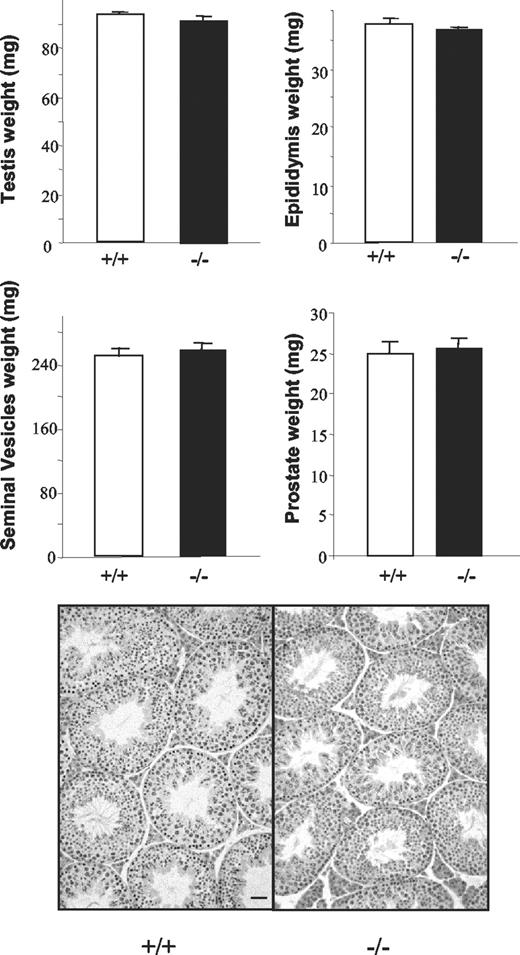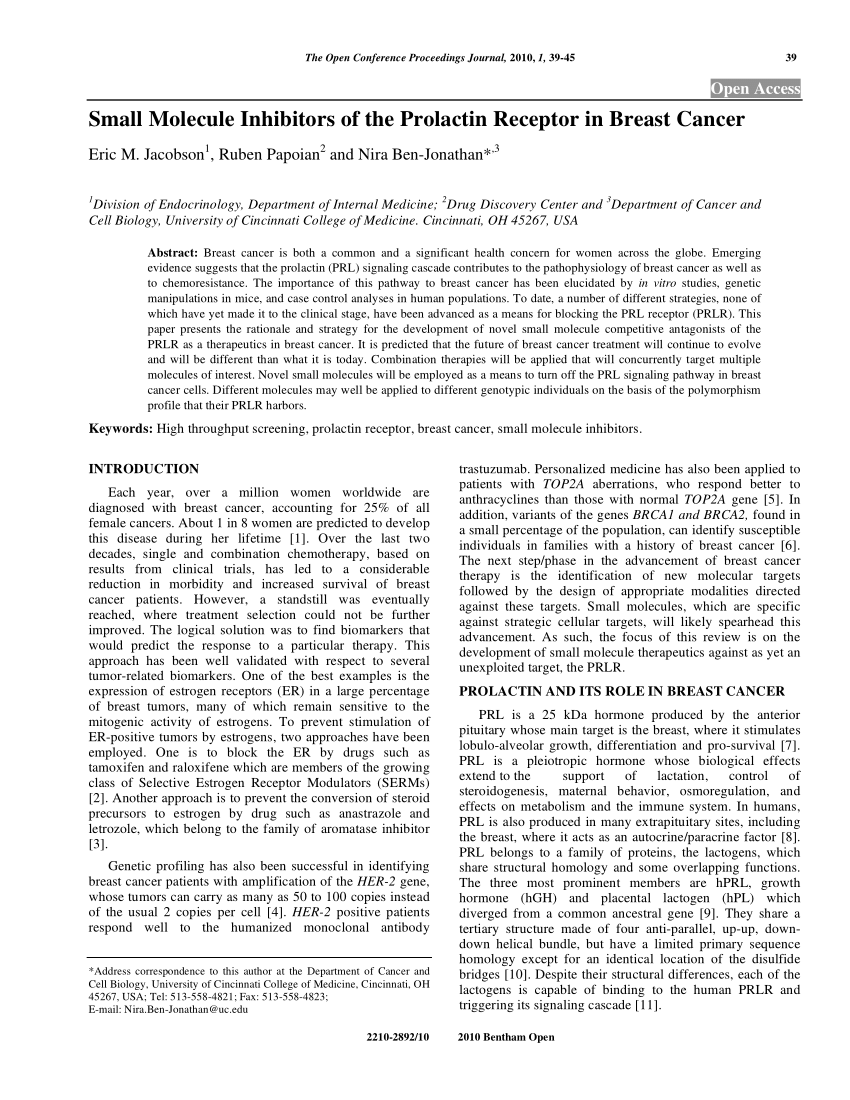Mice with a targeted disruption of the prolactin (PRL) receptor gene were used to study the physiological role of PRL in the control of the male reproductive function. Fertility parameters as well as body and reproductive organ weights (epididymis and testes) were unaffected in PRL receptor knockout mice. Testicular histology and sperm reserves were also normal. Compared with wild-type animals, [PRLR] knockout mice had no significant difference in basal plasma LH, FSH, and testosterone levels, and the weight of seminal vesicles and prostate was unaffected. Moreover, no alteration was detected in human chorionic gonadotropin-induced testosterone levels. It is concluded that the absence of PRL signaling is not detrimental to male testicular function and to fertility in the mouse.


